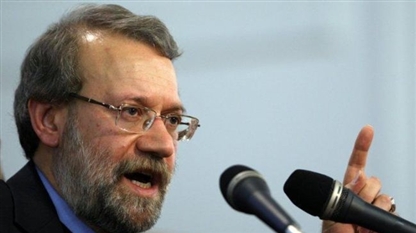Iranian Majlis Speaker, Ali Larijani, slammed the UN nuclear agency’s stance on the latest round of nuclear talks between Iran and the six major powers, stressing that the coming round would be a test for P5+1.
Iranian Majlis Speaker, Ali Larijani, slammed the UN nuclear agency’s stance on the latest round of nuclear talks between Iran and the six major powers, stressing that the coming round would be a test for P5+1.
Addressing a Majlis open session on Sunday, Larijani said Westerners are seemingly looking for excuses in the talks between Iran and the five permanent members of the UN Security Council - Russia, China, France, Britain and the US - plus Germany, which mainly focus on Iran’s nuclear energy program. 
“They should not do anything that compels the Islamic Republic to revise its interactive course,” Larijani added.
He noted that following recent Iran-P5+1 talks in Almaty, Kazakhstan, the International Atomic Energy Agency (IAEA) and some others made remarks that not only failed to help the process of negotiations but can actually be seen as an attempt to create obstacles in the path of the talks.
The top Iranian parliamentarian stated that Majlis is following talks between Iran and the P5+1 and considers the next round of negotiations as “a test of whether to weigh another option.”
Iran’s Majlis Speaker echoed the remarks of the Islamic Revolution Ayatollah Sayyed Ali Khamenei, who pointed to the West’s track record of disregarding its own agreements and statement, noting that the next round of negotiations between Iran and the P5+1 group will be a test of Western sincerity.
Larijani further said that Westerners should know that their “carrot-and-stick” approach is not effective anymore.
“The Islamic Republic of Iran has repeatedly announced that our plan [is based on] the use of peaceful nuclear technology within the framework of the NPT (Treaty on the Non-Proliferation of Nuclear Weapons),” the Majlis speaker said.
Earlier in March 4, IAEA's chief Yukiya Amano said that he was "unable to report any progress" in the body's talks with Tehran over its nuclear energy program.
He urged Iran to give international inspectors swift access to the Parchin military site located in the south of Tehran, saying, “Providing access to the Parchin site would be a positive step which would help to demonstrate Iran’s willingness to engage with the agency on the substance of our concerns.”
Iran has vehemently dismissed allegations about clandestine nuclear activities at its Parchin military site. The IAEA inspectors have so far visited the site two times.